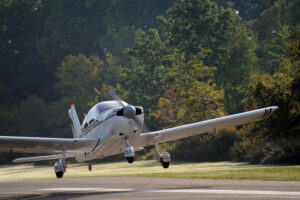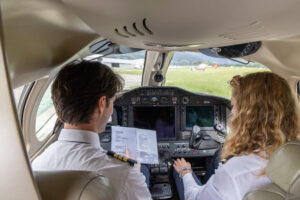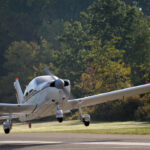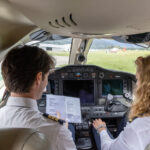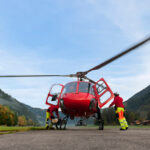Careers in Aviation | Skills that Make a Great Pilot
Learning to fly is one thing—but becoming a truly great pilot takes more than just logging hours or acing a checkride. Behind every confident takeoff and smooth landing is a set of personality traits and habits that make for a successful career in aviation. Whether you’re dreaming of the airline cockpit or planning to fly for business, the foundation starts with your mindset, work ethic, and the way you approach challenges.
One of the most essential traits in aviation is calmness under pressure. Emergencies, turbulence, equipment glitches, and high-stress situations demand a level head and quick decision-making. A strong pilot isn’t just reactive—they’re proactive, anticipating what could go wrong and staying two steps ahead. It also helps to have a technical mindset. Pilots need to understand aircraft systems, weather patterns, regulations, and airspace. STEM subjects like math, science, and physics can really set someone up for success.
Core Traits of a Successful Pilot:
- Remains calm under pressure and makes thoughtful, timely decisions.
- Strong problem-solver with a technical and analytical mindset.
- Physically fit enough to meet medical requirements and handle long duty days.
- Lifelong learner who stays current on procedures, tech, and regulations.
- Resilient in the face of setbacks—like failed checkrides or tough flight lessons.
- Team player, especially in multi-crew environments with lots of different personalities.
These traits aren’t just helpful—they’re necessary. Aviation is an industry that demands continuous growth and self-discipline. From the first solo flight to the final checkride of your career, you’ll be tested mentally, physically, and emotionally.
Soft Skills Matter, Too
Pilots don’t work in a vacuum. Whether you’re a solo CFI or a regional airline first officer, you’ll be constantly interacting with students, dispatchers, controllers, passengers, and other crew members. That’s why interpersonal skills are so valuable. A good pilot can communicate clearly, handle difficult conversations calmly, and work well with people from all walks of life. This is especially important for copilots, who often spend hours in close quarters with captains of all kinds of personalities.
In fact, many successful pilots credit their soft skills just as much as their flying ability. Kindness, humility, patience, and professionalism can make you someone people want to fly with—and that can open doors to better jobs and long-term success in aviation.
Bonus Traits That Give Pilots an Edge:
- Strong organizational skills – to manage schedules, currency, and preflight planning.
- Attention to detail – tiny errors in aviation can have big consequences.
- Mechanical curiosity – helps when troubleshooting in-flight or communicating with maintenance.
- Good situational awareness – knowing where you are, what’s happening, and what’s coming next.
Final Thoughts: Built for the Sky
While flight training teaches you how to operate an aircraft, it’s these personal qualities—like resilience, focus, teamwork, and calm under pressure—that shape the kind of pilot you’ll become. If you’re exploring careers in aviation, remember that success isn’t just about stick-and-rudder skills. It’s about the mindset you bring to every flight, every challenge, and every opportunity to grow. With the right traits and a strong foundation, you’ll not only fly—you’ll thrive.
RELATED CTS TRAINING



